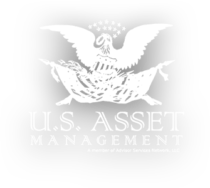Over the years, I have helped several business owners with financial planning and investment issues involved in the sale of their business. While everyone has their own unique story, there are smart strategies you can use to anticipate some of the challenges. The 3 most valuable pieces of advice that I can pass on are:
GET A FINANCIAL PLAN
Before you sell your business, get a financial plan done by someone who can speak in language you understand. The investment business is chock-full of people who seem to speak their own language. It sounds like English, but the words don’t make sense. It’s called “finance speak” and it’s not helpful to you if you don’t know what they’re talking about. When you construct your financial plan, you need to have a frank discussion about your assets, liabilities, income and expenses as well as your cash flows. These issues will factor into a financial model that is intended to help you plan your financial future so that you don’t run out of money after you sell your business.

Be realistic about your expenses and try hard to capture everything including the cost of your owner benefits. The planning process will help you get a grip on your monthly and annual costs to maintain your lifestyle. Your planner should then be able to give you a value that approximates what you would need to get from the sale of your business after taxes. If the number you need is too far off from the number you will receive, you will either need to secure a higher selling price (tougher than you think), reduce your living expenses (easier than you think), or not sell the business.
FIND A BUSINESS BROKER SUPERSTAR
Selling your business to a competitor you have known for several years and not paying a transaction fee seems like a savvy move but I have seen this strategy result in disappointment at best and chaos at worst. A “frenemy” as many competitors call each other, may hear that you are interested in selling, call you up, make you an attractive offer (with due diligence stipulations) and then camp out in your office for the next 6 months. It sounds crazy, but I’ve seen it happen. During their stay on-site, they will interact with your key staff, view your business processes and see how you make the “special sauce” that makes your business valuable. They will then wrap it all up by telling that they must lower their offer price because of the deficiencies they found during their visit.

You can avoid this trap that is both a time waster and price killer by finding a business broker superstar who either specializes in transactions in your industry or who has sold businesses in your industry. Mid-size businesses with sales of $20 million to $100 million require a different set of skills and contacts to get the deal done than a business with sales of say $1 million to $3 million. If you need help finding a business broker or mergers and acquisitions (M&A) specialist, ask your financial advisor or ask us. I have previously served on the board of the Georgia Association of Business Brokers and gotten to know several knowledgeable M&A specialists over the years that serve a variety of industries.
DO YOUR TAX PLANNING IN ADVANCE OF THE SALE
After you sell your business, that tax bill might take your breath away. I’ve seen some stunning sums of money go to the U.S. Treasury over the years and while we should all pay our fair share, there is nothing wrong with some proactive planning to cut your tax burden. Your investment advisor should be able to help you with tax sensitive investment strategies but he or she should also remind you to talk to your CPA or tax advisor about charitable gift strategies, conservation easements, low income housing credits, film industry tax credits (in Georgia) or even gifting shares of your business to a donor advised fund to avoid taxes on the sale that could generate a significant tax deduction.

Your business broker can also be a great help in reducing your taxes by coordinating with your CPA. A properly structured transaction can result in a lower tax bill just by how the assets are characterized. Be sure to talk with your CPA and if you don’t have one that has worked on large business transaction, you may need to find a CPA who has experience in this area. Again, the skills and experience of the CPA who handles business sales is different from a CPA who handles routine business-related functions or tax returns.
THE BOTTOM LINE
Find some seasoned professionals (a little bit gray is good) who have worked with other business owners like you. You want professionals who have guided others to a successful outcome on the journey you are about to embark upon. The road ahead will be much smoother with coordinated advice from experienced professionals. If you can’t find them, contact us and we will get the ball rolling.

David.Cross@us-am.com


